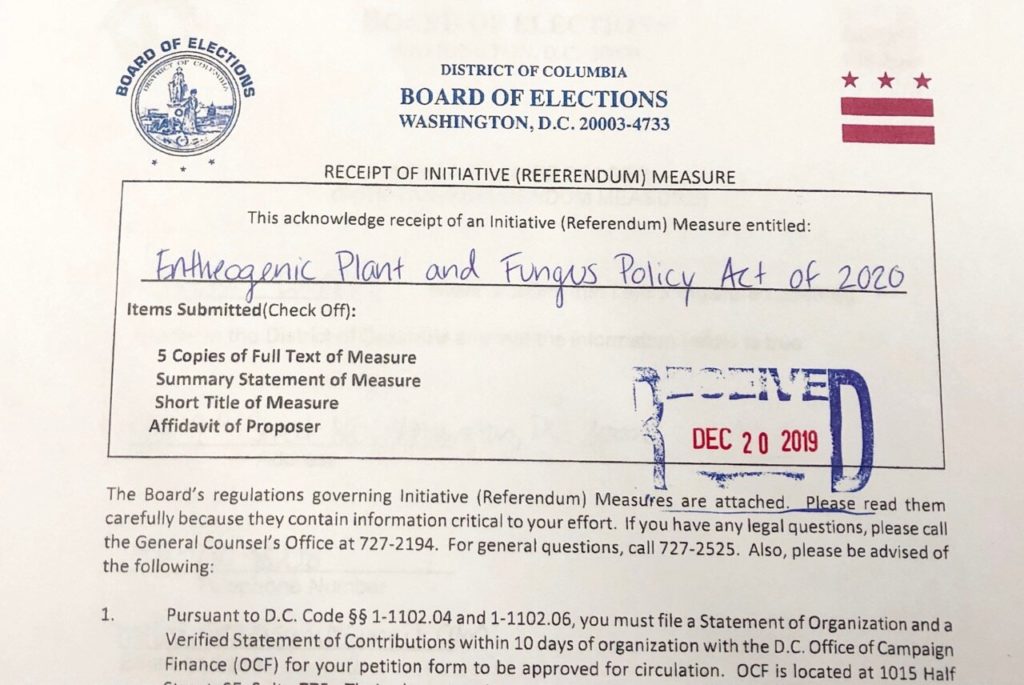The Decriminalize Nature D.C. organization has asked the D.C. Council and Mayor Muriel Bowser to develop and sponsor emergency legislation to authorize the Board of Elections to provide for online collection of signatures, citing the coronavirus.
The organization will need to collect more than 35,000 signatures from D.C. voters to get their initiative that hopes to decriminalize psychedelics to be successfully placed on the November ballot. A recent letter to the D.C. Council and Mayor Muriel Bowser shows that there are worries that the ongoing coronavirus outbreak across the nation may potentially thwart these efforts for the D.C. Metropolitan Police Department to enforce the laws at the “lowest priority.”
“We are extremely concerned that the ability to collect signatures on the petition will be adversely affected by the threat of the coronavirus,” the letter reads. “The signature collection process would involve 50,000 incidents of hand-to-hand contact, with each collector coming in contact with potentially hundreds of people each day–an estimated 250,000 interactions across D.C. during the petitioning phase.”
“If we can’t go out and petition people because it’s unsafe, then what are we supposed to do?,” Seth Rosenberg, press secretary for Decriminalize Nature D.C., told The Outlaw Report. “Do we just say we won’t do democracy this year because people are getting sick?”
He expects difficulties in allowing the petition to go online immediately, but increasing access is a huge priority, and doing it online would also allow for instant verification, thereby saving time and campaign funds. With petitioners shaking hands and handing over pens and clipboards, there is a risk of endangerment.
“It isn’t just us that we’re talking about. That’s every campaign in America that needs to collect signatures is going to be facing this,” said Rosenberg.
Melissa Lavasani, a budget officer at the D.C. Department of Energy and Environment and a spokeswoman for advocacy group Decriminalize Nature D.C., is the proposer of the initiative. If approved by D.C. voters and if the D.C. Council does not overturn the vote, the initiative would not make entheogenic plants and fungi legal in the nation’s capital, but would instead have the D.C. Metropolitan Police Department enforce the laws at the “lowest priority.”
For now, Decriminalize Nature D.C. expects to start collecting petition signatures on March 12, but they’re already dealing with volunteers asking questions about safety from the coronavirus.
“How would it affect petition signing if people were wearing rubber gloves and a mask? Is anyone going to walk up to that person? Would you?” asked Rosenberg. “We have a real problem.”
When it comes to what to expect for a Plan C in case online petitioning is not made possible, Rosenberg says that he hopes to have the petition deadline extended, especially if there is any need for quarantine in the city.
Screenshot of Entheogenic Plant and Fungus Policy Act of 2020 via Decriminalize Nature D.C.

